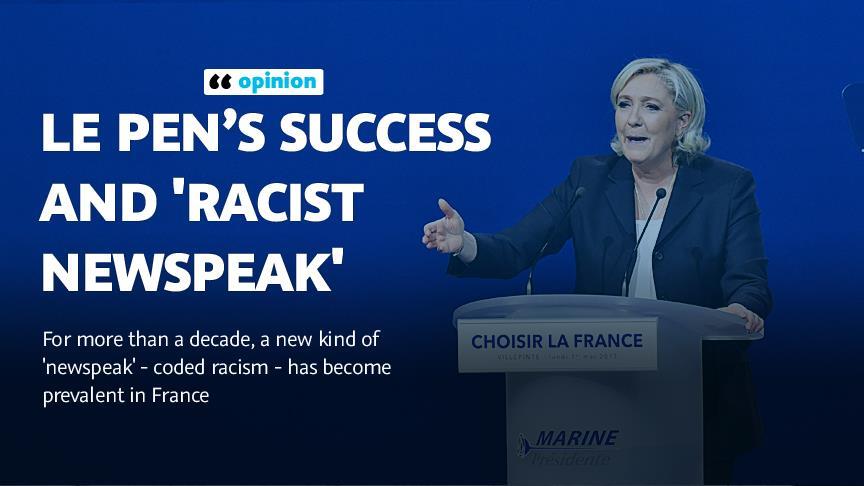
By Thomas Guenole
- The writer is
In the 2017 French presidential election, Marine Le Pen reached a new high by garnering around seven million votes in the first round and then over 10 million in the second.
If you unemotionally examine what she stands for, the harsh racism and xenophobia of the leader of the French far-right
So how can it be so easy for her and her party to express such hatred in the public debate of a republic whose constitution explicitly rejects all kinds of racism and xenophobia?
The answer is simple: "racist newspeak".
In his classic novel Nineteen Eighty-Four, George Orwell invented the concept of “newspeak”. In the novel, in the context of a dystopian society, this evolution of language made it extremely hard to find words and expressions to express any critical discourse.
Of
Racist newspeak is based on the rhetoric of allusion. For years, it has been based on the use of such words as “immigration” and “immigrants” to refer to the Maghreb minority despite the fact that the overwhelming majority of this community have been French for more than four generations now.
You don’t bluntly say: “Arabs are not like us”. You say instead: “Immigrants don’t want to fit in but even if they did, their culture is way too different”.
You don’t say: “I think there are too many Arabs”. You say “immigrants”, or still better, “immigration is excessively unrestrained in France".
You don’t say: “Arabs are lazy parasites living here at the expense of Frenchmen”. You say instead: “Our overly generous social protection system attracts too many immigrants”.
However, for more than a decade now, a new kind of racist newspeak has become prevalent in France: pseudo-cultural anti-Muslim speech.
It works like the previous one, but one has to use “Islam” and “Muslims” instead of “immigration” and “immigrants”.
You don’t say: “I don’t like Arabs”. You say instead: “Islam is not compatible with French republican values”.
You don’t say: “Arabs are not like us”. You say instead: “Muslims cannot fit in because their Muslim culture is just too different from the French one”.
You don’t say: “Arabs are potential traitors until proven good citizens”. You say instead: “The Muslim community has to explicitly disapprove of jihadist terrorist attacks”. And so on.
The purpose of this allusive rhetoric remains the same. In public debates in France, explicitly racist and xenophobic discourse is highly disapproved of. So, if you are a racist intellectual or a racist political figure, all you need is implicit and allusive discourse to continue freely expressing your hatred towards the Maghreb minority.
This is indeed one of the major tools Marine Le Pen and the far-right have been using for years in order to make their hate speech seem normal and acceptable.
This is how they have managed to perpetuate their racism and xenophobia under the guise of standing for “French culture”, “Christian values” or “French
Maybe it is time for French intellectuals,
Maybe it is time for them to stop letting far-right intellectuals and leaders get away with their racist newspeak.
Needless to say, this means a difficult battle of ideas, a long battle against the rhetoric of hatred that must be fought without fail.
*Opinions expressed in this piece are the author's own and do not necessarily reflect Anadolu Agency's editorial policy.
Anadolu Agency website contains only a portion of the news stories offered to subscribers in the AA News Broadcasting System (HAS), and in summarized form. Please contact us for subscription options.

